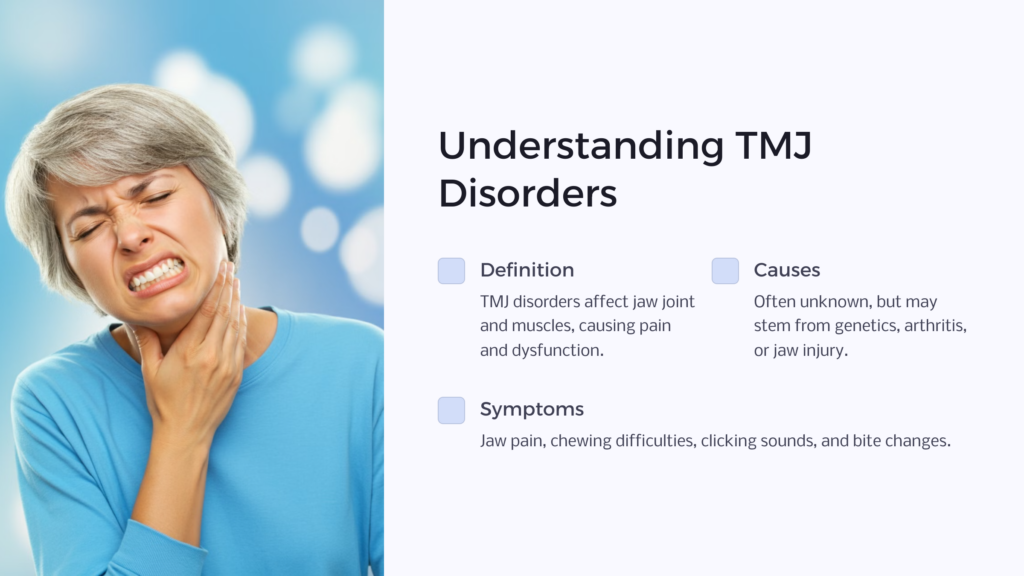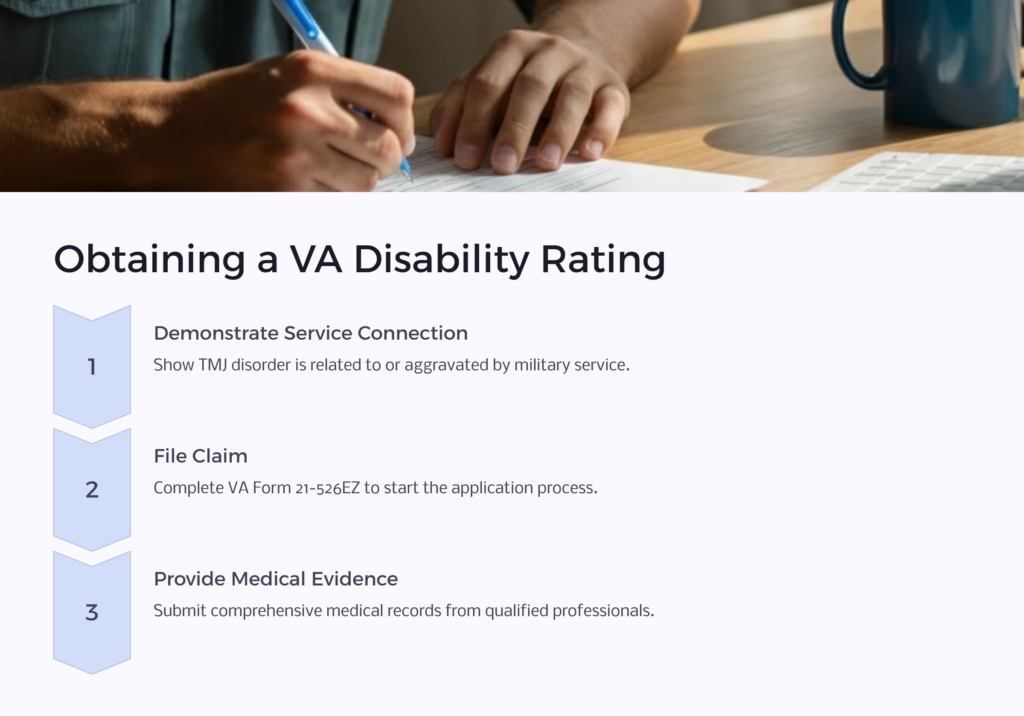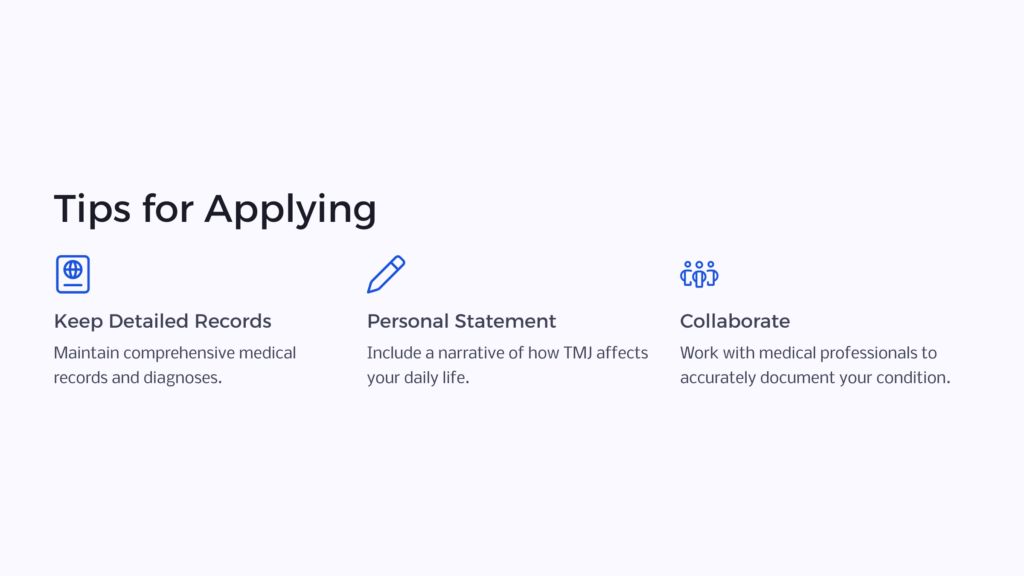The temporomandibular joint (TMJ), though minimal in size, holds great significance in the human body. This joint connects the lower jaw (the mandible) to the skull (the temporal bone) just in front of the ears. It functions like a sliding hinge, enabling the movements of biting, chewing, and speaking which we take for granted. Unfortunately, complications affecting this joint—collectively known as temporomandibular joint disorders or TMJ disorders—can have debilitating effects on quality of life. Veterans are no exception. In fact, Veterans Affairs (VA) recognizes TMJ disorders and offers disability ratings to veterans suffering from such conditions. Such ratings are crucial in determining the benefits that veterans receive. This article will delve into understanding TMJ disorders, their impact on veterans, and how to navigate the complex process of obtaining a VA disability rating for TMJ disorders.
Understanding TMJ

Normally, the TMJ functions silently in the background, facilitating various movements of the mouth. However, when TMJ disorders occur, the effects are far from subtle. TMJ disorders represent a group of conditions characterized by pain and dysfunction in the jaw joint and the muscles controlling jaw movement. The exact cause often remains unknown, but typically these disorders emerge from problems with the joint or with the muscles around it due to genetics, arthritis, or jaw injury.
Furthermore, a TMJ disorder can lead to numerous symptoms including pain in the jaw area, difficulties in biting or chewing, a clicking, popping, or grating sound in the jaw when you open or close your mouth, and even changes in the way the upper and lower teeth fit together. Thus, these disorders can render simple everyday activities unexpectedly challenging.
The Impact of TMJ Disorders on Veterans
Veterans often encounter a variety of health issues tied to their military service, with TMJ disorders being no exception. These could be attributed to stress-related teeth grinding, trauma (from blasts, for example), or the result of using their teeth as tools—a common practice in the military.
Studies reveal that the incidence of TMJ disorders among veterans is significant, dovetailing with other more visible war-inflicted injuries. The long-term impact of these disorders on a veteran’s daily life can be profound. Problems can include difficulties with speaking, eating, drinking, and even sleeping, and, thus, such conditions should not be taken lightly.
Navigating the VA Ratings for TMJ
In the VA’s efforts to compensate veterans for their service-related health conditions, they employ a disability rating system. These ratings are based on the severity of a disability and correspond to the VA disability benefits received meant to provide compensation, health care, and other services to the veteran for the presumed loss of earning capacity inflicted by their disability.
For TMJ disorders, the VA employs a particular scale. The rating varies from 10% to 40%, with a 10% rating given for mild or occasional episodes, a 20% rating for moderate symptoms affecting the jaw, a 30% for severe symptoms including limited motion or locking of the jaw, and ultimately, a 40% rating for incapacitating episodes at least once every two months.
The Process of Obtaining a VA Disability Rating for TMJ

To be eligible for a disability rating, veterans must demonstrate that their TMJ disorder condition is service-related or was significantly aggravated during military service. The disability claim application process begins with filling out the VA Form 21-526EZ.
Furthermore, applicants need comprehensive medical evidence substantiating their TMJ disorders and their effects on their quality of life. Such evidence should come from a qualified professional detailing the frequency, severity, and duration of incapacitating episodes or periods of disability.
Tips for Veterans Applying for TMJ VA Rating

When it comes to applying for a VA rating for TMJ Disorders, preparation is key. Collaborating with medical professionals is advisable to accurately record the extent of your condition. Keep detailed medical records, including all diagnoses, treatments, and testimonials from healthcare providers.
Moreover, including a personal statement narrating the impact of TMJ disorders on your daily life can prove invaluable. Don’t be afraid to put a spotlight on how your service-related TMJ condition deteriorates your quality of life. Every piece of evidence adds weight to your application and increases the likelihood of securing a favorable rating.
Seeking Help for the VA TMJ Rating Process

Navigating the complex world of VA disability ratings can be overwhelming. However, help is available. Veterans Service Organizations (VSOs) offer invaluable assistance during the application process, as they’re well-versed in VA rules and regulations. Furthermore, hiring a VA disability attorney can be an excellent idea. These licensed professionals can represent you during appeals and help ensure your application is without errors.
Utilizing online resources is also a good way to gather useful insights. Additionally, VA health facilities often have resources available and trained personnel to assist with applications.
Conclusion
Understanding TMJ disorders and the impact they have on veterans is essential. Perhaps even more so is becoming familiar with the process of obtaining a VA disability rating. While this can seem like a daunting endeavor, awareness of the ins and outs of the system plays a crucial part in ensuring veterans with TMJ disorders receive the benefits they deserve. As a final note, keep in mind the importance of the endeavor: Securing a favorable VA disability rating can make a significant difference in the lives of veterans, helping them live more comfortable, satisfying lives despite their conditions.
 Benefits.com Advisors
Benefits.com Advisors
With expertise spanning local, state, and federal benefit programs, our team is dedicated to guiding individuals towards the perfect program tailored to their unique circumstances.
Rise to the top with Peak Benefits!
Join our Peak Benefits Newsletter for the latest news, resources, and offers on all things government benefits.



















